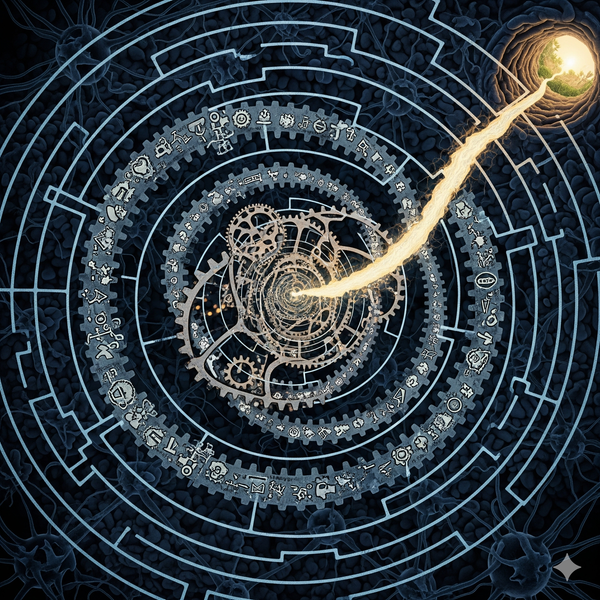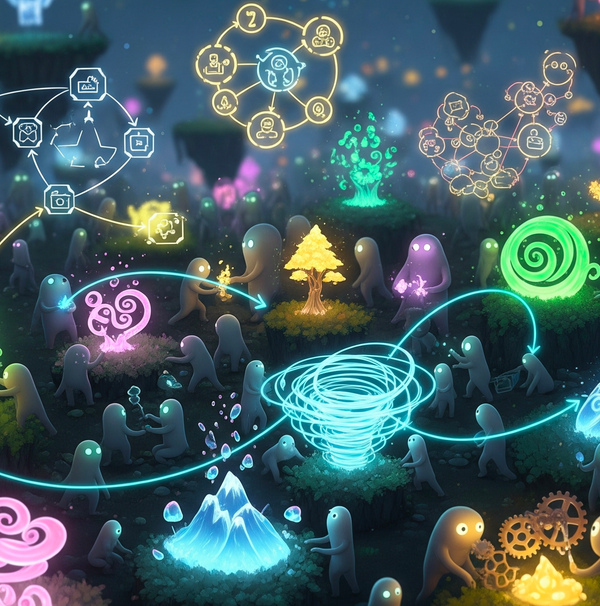Toward a New Framework for Life and Intelligence

We could introduce Geneosophy in many ways: by explaining what it is, or by describing how it can be used. But to convey why Geneosophy is needed, let us begin instead with a familiar sensation — one you’ve likely experienced when observing the world.
When you look at an object, say a rock, you feel as though you recognize it. You have an immediate sense of familiarity: you could touch it, throw it, examine it. If you were a geologist, you might even analyze its atomic structure — and you would know how to do so. You can predict how the rock will respond to your actions, or to external forces. In short, you feel confident in your understanding of its behavior, and you even possess models that can accurately predict it.
But when you observe a living organism, that feeling of complete understanding is absent. A lion behaves unpredictably; you cannot know for sure when or how it might attack, though you expect it could and instinctively keep your distance. Even if you are a biologist, and you know how bacteria reproduce or how antibiotics kill them, there remains a lingering sense that their behavior could surprise you.
Why does your understanding of organisms feel so different from your understanding of rocks? Because you cannot fully explain organisms based solely on what you observe and measure. You have tried modeling organisms in the same way you model rocks — using logic, mathematics, and programming — yet something always escapes you. Organisms display unexpected behaviors, bursts of creativity, patterns that seem to defy fixed rules.
What is really happening here? What is the fundamental difference between a rock and a bacterium?
Put simply: your understanding of a rock feels complete because, in principle, you can describe all of its possible behaviors.
Your understanding of a bacterium, however, feels incomplete because you cannot possess all possible descriptions of its behavior. Why? Because a bacterium generates its behavior from its own point of view — based on its own knowledge.
Pause and reflect on this: you can potentially explain every behavior of a rock, but not every behavior of a bacterium. Something about the bacterium is fundamentally different.
You might say, “Of course — the bacterium is alive, and the rock is not.” And you would be right. Life, intelligence, creativity, agency — all these concepts are deeply interconnected and remain mysterious to us. We intuitively recognize life when we encounter it, yet we lack a precise definition.
Why is that? Because if we truly had such a definition, we could predict an organism’s behavior. But we cannot. The traditional frameworks we use — based on external observation — fail to capture something essential.
Geneosophy begins with this recognition and proposes new tools for describing organisms — but with one crucial caveat: you cannot apply Geneosophy before first analyzing yourself in Geneosophic terms.
Why? Because you must first examine what the very concepts of “object” and “organism” mean for you. What does it mean for you to observe, to understand, to describe, to attribute behavior or knowledge?
This is unprecedented in the history of thought. Physics never required you to reconceptualize yourself. It may take years to master physics, but during those years you are never asked to question what "understanding", “knowledge,” “object,” or “description” themselves mean. You simply take them for granted and learn how to use the tools.
Geneosophy is different.
Within Geneosophy, you will be able to situate mathematics, programming, and science within a broader and coherent context. This does not mean they are wrong — far from it. Instead, Geneosophy allows you to see where they fit into your knowledge, and when and why you should use them.




